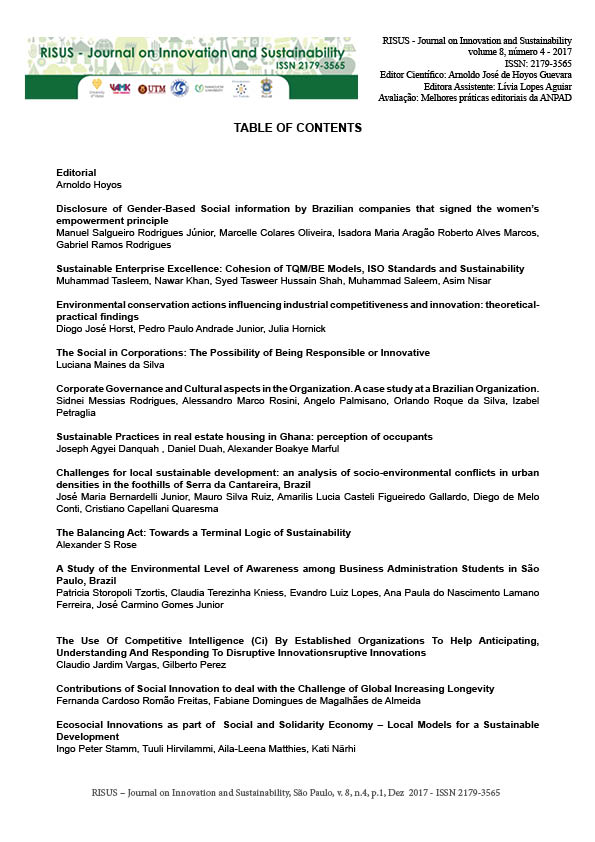ENVIRONMENTAL CONSERVATION ACTIONS INFLUENCING INDUSTRIAL COMPETITIVENESS AND INNOVATION: THEORETICAL-PRACTICAL FINDINGS
DOI:
https://doi.org/10.24212/2179-3565.2017v8i4p42-59Palabras clave:
Industrial and Environmental Management, Competitiveness, Innovation, Industrial Ecology, Sustainable Development.Resumen
The aim of this study was to understand if environmental conservation actions influence industrial competitiveness and innovation. A systematic review was performed in the Scopus® database searching for studies published between 2009 and 2016, in order to obtain the knowledge base related to the topic. Additionally, a questionnaire grounded on literature was applied to multisector group of 15 medium and large Brazilian companies with ISO-14000 certification. The results showed that in practice companies recognize that industrial environmental conservation actions have influence on competitiveness and innovation when companies adopt a conscious selection of materials for development of new products without environmental risks or impacts, as well as through continued improvements, innovation of company management system, processing innovations to meet environmental requirements allowing increasing their operational efficiency, processing innovations meeting environmental requirements allowing increasing its productivity, revenue generation with recyclables or wastes, and non-generation of exporting barriers, resulting in costs and losses reduction, thereby increasing the company image in market, thus practical results supported the theoretical basis grounded by Porter.Descargas
Publicado
2017-12-24
Número
Sección
Papers
Licencia
This Journal is licensed under a Creative Commons Attribution-Non Commercial-No Derivers 4.0 International license.
1.The author (s) authorize the publication of the article in the journal;
2.The author (s) warrant that the contribution is original and unpublished and is not in the process of being evaluated in other journal (s);
3. The journal is not responsible for the opinions, ideas and concepts emitted in the texts, as they are the sole responsibility of its author (s);
4. The editors are entitled to make textual adjustments and to adapt the articles to the standards of publication.


